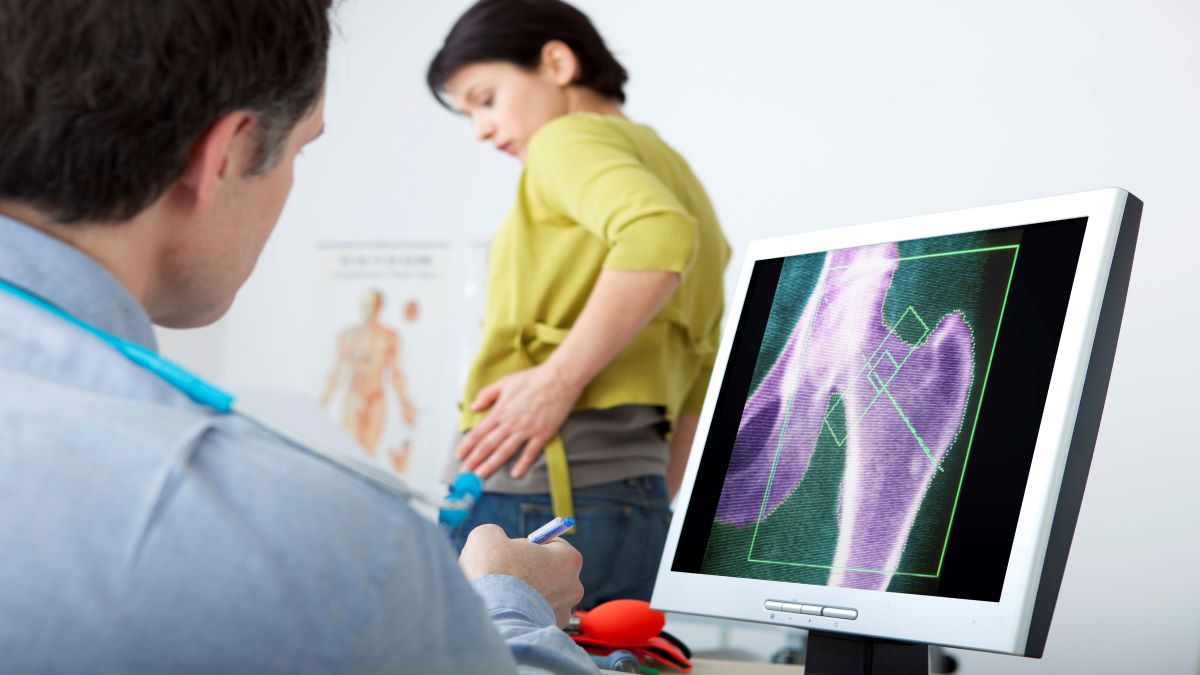Avascular necrosis treatment
The goal of treatment for avascular necrosis is to prevent further loss of bone tissue from occurring. Specific treatment typically is dependent on the amount of bone loss and damage that has already happened.
Medications and therapy
If treatment begins in the early stages of the disease, the symptoms of avascular necrosis may be managed with therapy and medication. The doctor may recommend the following treatments:
- Nonsteroidal anti-inflammatory drugs. Also known as NSAIDs, these medications may reduce the inflammation and pain caused by avascular necrosis. Examples of NSAIDs include ibuprofen and naproxen sodium.
- Osteoporosis drugs. Medications like alendronate may help slow down the progression of avascular necrosis, but evidence to support this is inconclusive.
- Cholesterol-lowering drugs. Decreasing the amount of fat and cholesterol in the bloodstream may help prevent blockages in the blood vessels.
- Blood thinners. In people who have clotting disorders, these medications may help prevent the blood from clotting and causing blockages in the blood vessels.
- Rest. Reducing the amount of stress on the affected bones can help slow the progression of avascular necrosis. Physical activity is sometimes restricted for several months.
- Exercises. Physical therapy is sometimes recommended to teach patients exercises to help improve or maintain movement in their joints.
- Electrical stimulation. Electrical currents may help encourage the body to form new bone tissue to replace the tissues that have been injured by avascular necrosis. Electrical stimulation is applied to the damaged tissue directly during a surgical procedure or through the skin via electrodes.
Surgical and other procedures
A physician may advise surgery as the best course of treatment for avascular necrosis since symptoms often don’t appear until the condition is well-advanced. Surgical options include:
- Core decompression. In this procedure, a portion of the bone’s inner layer is removed. It reduces pain and stimulates the growth of new blood vessels and new bone tissue due to the creation of additional space in the bone.
- Bone graft (transplant). This operation can help strengthen a bone weakened by avascular necrosis. A bone graft is harvested from another healthy bone in another part of the patient’s body.
- Bone osteotomy (reshaping). A piece of bone below or above the joint is removed in this surgery. As a result, the weight of the bone affected by avascular necrosis shifts. It may allow for the delay of joint replacement surgery.
- Joint replacement. Suppose the affected bone has collapsed or other treatments have not been successful. In that case, surgery may be necessary to completely replace the damaged portions of the joint with artificial parts. Approximately 10% of all hip replacements in the U.S. are due to avascular necrosis in the hip.
- Regenerative medicine treatment. It is a new procedure in which stem cells are harvested from the patient’s bone marrow. During surgery, these cells are inserted where the damaged hip joint was removed, and it is hoped that this stimulates new bone growth. This procedure may be helpful in the future for early avascular necrosis of the hip treatment.
Avascular necrosis complications
If not treated, avascular necrosis only gets worse over time. The bone may eventually become so weak that it collapses. Avascular necrosis also causes bones to change shape and can potentially cause severe arthritis.
How to prevent avascular necrosis
In order to improve your overall health and to reduce your risk of developing avascular necrosis:
- Limit your intake of alcohol. Heavy alcohol consumption is one of the highest risk factors for the development of avascular necrosis.
- Keep cholesterol levels low. Tiny pieces of fats are the most likely substance to block the supply of blood to the bones.
- Monitor steroid use. Make sure to inform your physician about any present or past use of high doses of steroids.
















Leave a Reply
You must be logged in to post a comment.